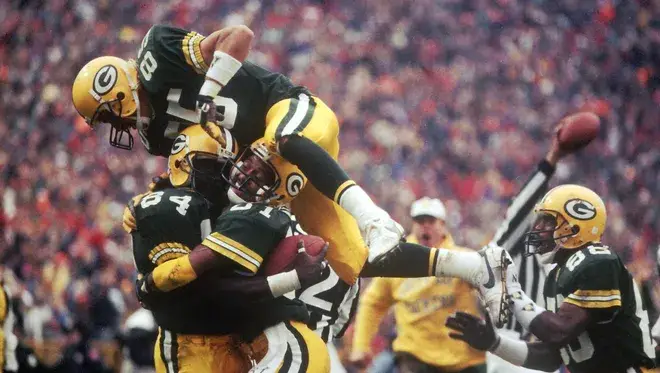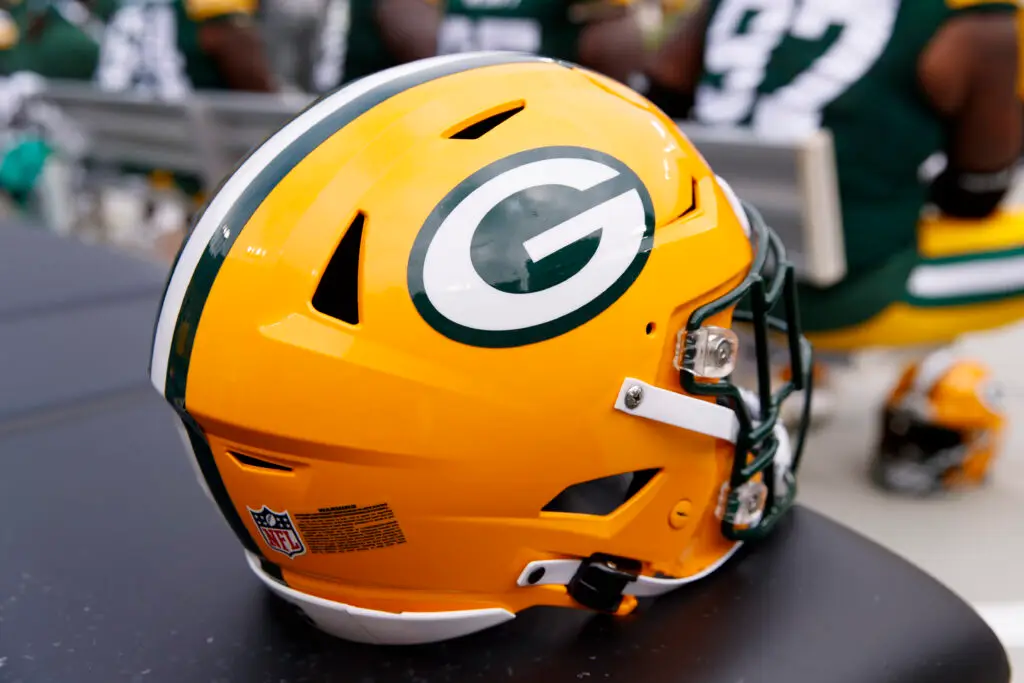
In all walks of life, changing and adapting to the times is inevitable, sometimes vital, to survival. Throughout the history of the world, willingness to evolve and progress enhances the advancement of a civilization, or, in the case of the NFL, the dawn of a new method of conducting business.
Unwittingly, the November 5, 1989, game between the Green Bay Packers and the Chicago Bears ushered in a once-thought radical and unheard of concept to NFL officiating that now has become standard operating procedure. And, in the process, it set the stage for one of the most dramatic finishes not only in the bitter rivalry between the Packers and the Bears but in the league’s storied history, as well.
The 1989 Installment of the Rivalry Actually Matched Two Solid Teams

Milwaukee Journal Sentinel Files
During the glory years of the mid-to-late-1980s for the Chicago Bears, their twice-yearly meeting with the Green Bay Packers usually had a foregone conclusion. After the Packers beat the Bears, 31-28, on December 4, 1983, Chicago defeated their enemies 10 out of the next 11, which included an 8-game heater that led to their first meeting of 1989,
However, that year’s version of the Packers was unlike those that previously played in the decade. Normally a bottom-feeder in the NFC Central, Green Bay was competitive with a 4-4 record entering their week 9 tilt against Chicago. The Bears, after winning their first four contests, limped into the game having lost three of their last four.
When it comes to this longstanding grudge, the records mattered very little to how the game was played. And on that brisk, 47 degree day in northeast Wisconsin, the outcome was not determined until the very end.
The New Leader of the Pack: The Majik Man

Drafted in the 10th round of the 1987 NFL Draft, quarterback Don Majkowski joined the Green Bay Packers’ quarterback room with low expectations. They had an established signal caller, Randy Wright, but Majkowski did start 5 games for the Packers in 1987, winning two, and gained valuable experience as a rookie.
Although the 1988 version of the Green Bay Packers won just four games, Majkowski settled into the QB1 role and started nine games.
In 1989, the “Majik Man” flourished.
En route to a 1989 Pro Bowl selection, Majkowski started all 16 games and led the NFL with 4318 passing yards. All those yards were great, but Packers’ fans will tell you even today that 14 of those yards were something special.
Dramatic Game vs. The Chicago Bears #3: November 5, 1989

The Packers and Bears trading blows throughout the game; Green Bay struck first on a 24-yard Majkowski to Clint Didier touchdown pass in the opening quarter. The Bears answered with a Kevin Butler field goal in the second quarter to make the score 7-3 at halftime.
Another Butler field goal and a short Brad Muster touchdown plunge in the third quarter allowed the Bears to forge a 13-7 lead, which held until the game’s final drive.
The Packers took control of the ball on their own 27-yard line with 4:44 left in the game. The final quarter was a wealth of frustration for Green Bay; in the fourth period, twice Majkowski had turned over the ball in the red zone — one on a fumble and the other on an interception by linebacker Ron Rivera with 7 minutes to play.
But, on that final drive, Majkowski and the Packers found their stride, albeit with a bit of divine intervention. With four minutes to play, Majkowski had a pass tipped at the line of scrimmage. Bears tackle Steve McMichael leaped to grab the easy interception, but tight end Ed West wrestled the ball away and the Packers maintained possession.
If that wasn’t fortunate enough, with 1:26 left in the game and Green Bay on the Chicago 7-yard line. Again, Majkowski had the ball knocked loose by John Roper. It lay untouched on the ground for several seconds before Green Bay center Blair Bush fell on it. “I fell like I was moving in slow motion,” Bush said.
Facing a 4th-and-goal from the Bears’ 14, Majkowski dropped back to pass but was flushed to his right by the Bears’ pass rush. As he neared the line of scrimmage, Majkowski found Sterling Sharpe in the end zone in the midst of several Bear defenders for the tying score. That touchdown set off a massive celebration, which screeched to a halt as line judge Jim Quirk’s yellow flag fell to the ground on the far side of the field.
See Also: Video of Don Majkowski’s TD Pass to Sterling Sharpe

Green Bay Press-Gazette Archives
What transpired over the next four minutes sparked a controversy that is still lit today.
The Birth of Instant Replay
On the crucial play, Majkowski was ruled to be over the line of scrimmage when he threw his pass, which would result in a loss of down penalty and a change of possession to the Bears.
Enter instant replay, a system implemented by the NFL one season earlier. The play was reviewed by replay officials in a Lambeau Field box, via the most sophisticated technology of the day in 1989: VCR tape.
Rewinding, pausing, and playing back the play in slow motion ate up time as the game came was delayed, and it proved to be an excruciating four-minute span for players, fans, and the television audience that seemed like an eternity.
Majkowski knew he was behind the line of scrimmage.
“The officials got it right. I planted my foot at the 15,” Majkowski said in 2014. “It was big win for us. We hadn’t beaten Chicago in four years. There was a lot of bad blood between the teams with some late hits before I got there.
“The Bears had won the Super Bowl in ’85, and we were tired of hearing about their success. We wanted to be the team to draw the line and beat them.”
Finally, referee Tom Dooley announced that the call had been reversed. Translation: The touchdown stood, and Lambeau Field was up for grabs.
The loss didn’t sit well then with Bears’ head coach at the time, Mike Ditka.
“They got it wrong, period,” Ditka said in 2014. “I was mad. I feel we got jobbed. I was young and emotional and it bothered me because it was the Packers. It’s a hard game to officiate, and they’re still getting it wrong today, even with instant replay. We got right on the plane — got the hell out of there and went back to Chicago.”
Ditka continued in a different interview in 2014: “I love Don; he was a competitor. I loved him. He was a great guy. The only thing I’ll say very honestly, if this game would’ve been played in Chicago, the call would’ve been upheld. It’s that simple. This was a homer deal. Period. The guy up there was a homer. I don’t care who he was. If he was an official in the National Football League, then he’s lousy. But if it would have been in Chicago, we would’ve had our own guy up there.”
The Bears organization was so upset with the controversial outcome that it placed an asterisk next to the score in the team’s media guide for the next decade, denoting that the result was tainted.
The Legacy of the “Instant Replay Game”

Buoyed by the immaculate come-from-behind victory, the Green Bay Packers enjoyed their best season since 1972 and finished with a 10-6 record; but, they narrowly-missed the playoffs, losing a tie-breaker for the division title to the Minnesota Vikings.
The Chicago Bears trended the other way and slogged through the rest of the season to a disappointing 6-10 mark and also missed the playoffs for the first time in five seasons.
The real lasting effect of this game was the advancement of instant replay in the league. The phrase “Upon further review” now holds a place in the American lexicon–for better or worse–because of the exploits of a band from Green Bay known in 1989 as “Majik and the Miracles.”
For the next installment in this series, time travels 21 years to a season finale that held the entire year in the balance for the Packers: win and join the playoff tournament, or lose and go home for the post-season.


